expiredphoinix | Staff posted Feb 02, 2023 01:26 PM
Item 1 of 6
Item 1 of 6
expiredphoinix | Staff posted Feb 02, 2023 01:26 PM
2TB WD Black SN770 Gen4 PCIe NVMe Solid State Drive
+ Free Shipping$135
$150
10% offAmazon
Visit AmazonGood Deal
Bad Deal
Save
Share
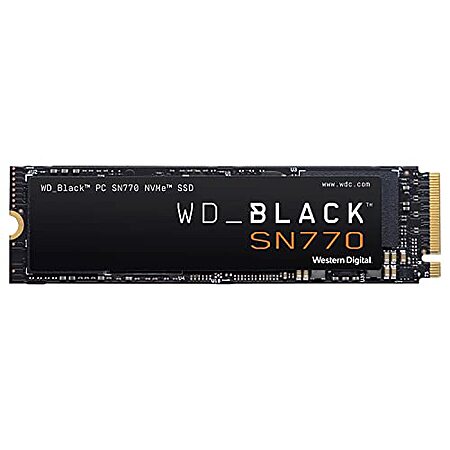
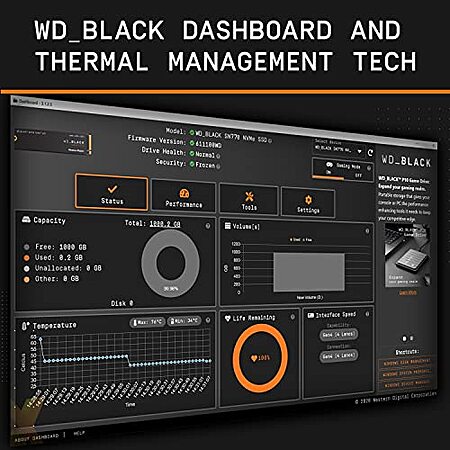

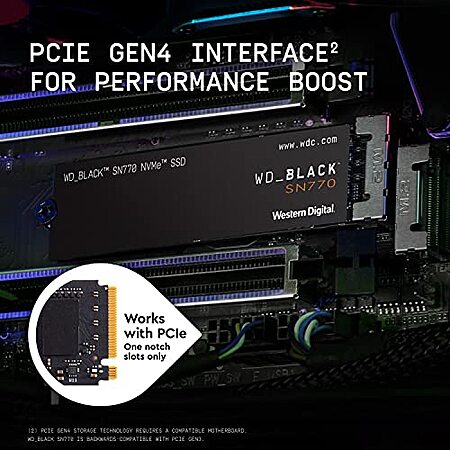
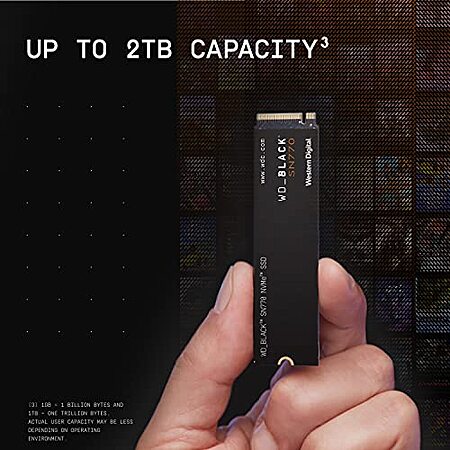
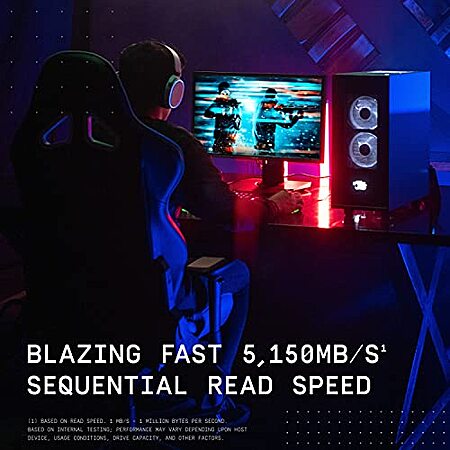

Leave a Comment
Top Comments
45 Comments
Sign up for a Slickdeals account to remove this ad.
https://www.amazon.com/Crucial-MX...74469&th=1
OR
get Samsungs 2tb for 149.XX. Samsung has the MOST Tbw (terabytes written- longevity)
https://www.amazon.com/SAMSUNG-In...e904010ad0
level 1
hojnikb
· 4 yr. ago · edited 4 yr. ago
Dramless SSDs are just fine for the intended purpose. Having no DRAM means less complex pcb, smaller/simpler flash controller, lower power draw (especially in idle) and overall lower cost (most noticebly on smaller capacities).
Obviously having no dram kills some performance (random writes especially) and consistency, so where performance is critical, you're not gonna use such a drive.
As for durability/endurance of such drive; it highly depends on the workload. Having no dram does not inherently mean less endurance (dram is only meant for mapping tables, not for write caching or something similar) so mapping tables on the actual flash have to be updated regularly anyway, regardless if drive has dram or not. If drive has lots of random write workload, having dram does speed up things and some flash translation layer updates can be cached to the dram and flushed back to flash at a delay (less updates to the actual flash).
Less endurance for dramless drives get thrown around a lot, but the bigger factor here is not the lack of dram itself, but just the fact, that such drives are usually lower cost, which means lower bins of flash are used and simpler controllers don't do as good of a job with ECC. This results in lower rated endurance.
Honestly, if implemented correctly, dramless drives are prefectly fine and shouldn't be disregarded.
https://www.amazon.com/Crucial-MX...74469&th=1
OR
get Samsungs 2tb for 149.XX. Samsung has the MOST Tbw (terabytes written- longevity)
https://www.amazon.com/SAMSUNG-In...e904010ad0
level 1
hojnikb
· 4 yr. ago · edited 4 yr. ago
Dramless SSDs are just fine for the intended purpose. Having no DRAM means less complex pcb, smaller/simpler flash controller, lower power draw (especially in idle) and overall lower cost (most noticebly on smaller capacities).
Obviously having no dram kills some performance (random writes especially) and consistency, so where performance is critical, you're not gonna use such a drive.
As for durability/endurance of such drive; it highly depends on the workload. Having no dram does not inherently mean less endurance (dram is only meant for mapping tables, not for write caching or something similar) so mapping tables on the actual flash have to be updated regularly anyway, regardless if drive has dram or not. If drive has lots of random write workload, having dram does speed up things and some flash translation layer updates can be cached to the dram and flushed back to flash at a delay (less updates to the actual flash).
Less endurance for dramless drives get thrown around a lot, but the bigger factor here is not the lack of dram itself, but just the fact, that such drives are usually lower cost, which means lower bins of flash are used and simpler controllers don't do as good of a job with ECC. This results in lower rated endurance.
Honestly, if implemented correctly, dramless drives are prefectly fine and shouldn't be disregarded.
Our community has rated this post as helpful. If you agree, why not thank dplane
Sign up for a Slickdeals account to remove this ad.
but the SN850 and SN850X are much better
but the SN850 and SN850X are much better
Anyone have benchmarks or articles displaying this?
Sign up for a Slickdeals account to remove this ad.
Leave a Comment